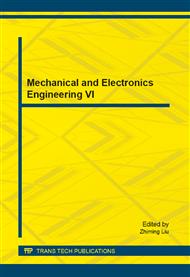p.93
p.97
p.101
p.105
p.109
p.113
p.119
p.124
p.128
Multi-Factors Analysis of Condenser Vacuum under Overall Working Conditions
Abstract:
It is of great significance to determine an optimal condenser vacuum for energy-saving diagnosis, for the vacuum means a lot to the safe and economic operation of thermal power units. The key parameters were calculated by the practical data, such as the cleanliness factor. The condenser heat transfer coefficient is affected by both the dirty of condenser water side and other factors on the basis of the method of adjusting the circulating-water flow unilaterally to get the optimal vacuum of condenser in this paper. The impacts of the exhausting steam resistance, the oxygen content of condensate caused by the change of the circulating-water flow were considered in this paper. The practical operation data was analysed with the results from HEI. The simulations were examined in the comparison of heat transfer coefficient. The impacts of unit energy consumption characteristics under overall working conditions caused by condenser vacuum were obtained in the approach based on the theory of energy specific fuel consumption (ESFC). The variation of auxiliary specific consumption as the temperature of circulating-water changing was obtained. The results indicated that the optimal condenser vacuum determined by the method aiming at maximum output power and many factors under overall working conditions accounted for played an important role in the energy saving diagnosis of thermal power units.
Info:
Periodical:
Pages:
109-112
Citation:
Online since:
October 2014
Authors:
Price:
Сopyright:
© 2014 Trans Tech Publications Ltd. All Rights Reserved
Share:
Citation:


